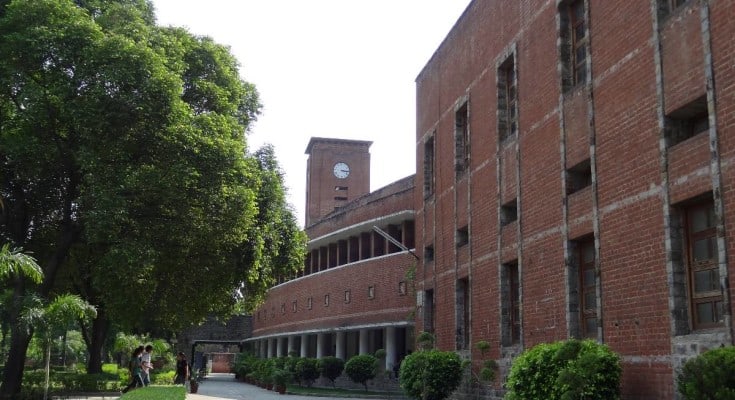TRIGGER WARNING- A certain video is discussed in this article which might be disturbing for some.
On 30th April, a video showing just another instance of judgemental remarks based on sexism and misogyny went viral. The video was shared by Shivani Gupta, on her Instagram, showing an elderly lady saying that she (Gupta) will get raped if she continues wearing short skirts. When Shivani’s two friends arrived at the scene to their friend’s rescue, the lady went on to say that these two also might get raped just for being rebellious.
These are the parts that the woke and conscious side of the internet shared mostly. However, towards the end, we also see the young women yelling at this lady, asking her ‘Have you been raped?’.
A few hours later, Instagram took this video down and this is what went down amongst people.
One school of thought feels that sharing this video online was the right move, and this would embarrass the ‘bullying’ woman, and set an example for people. Yes, misogyny is ingrained in Indian society but now it’s high time we get done with it.
On the other hand, there are also people who feel this was an extreme move and they are troubled with the latter parts of the video. They say ‘Bullying the bully isn’t the right thing to do’.
Yes, I do condemn that messaging mean texts to that elderly lady and commenting remarks like “You yourself should get raped.” However, staying silent and having the normalised attitude isn’t going to help anyone.
This instance isn’t in solitude. It can be attached to tons of other incidents where women in India have been subjected to mean public remarks. Yes, the video might be nothing new as such casual sexism is common. Still, does that mean we should just see this incident as nothing and turn a blind eye towards it?
Today, I, being in the capital city, being a student at the University of Delhi, can have opinions on anything and everything in our country. I can even talk on problems that rural women face but I can hardly do much, from my privileged safe space in this city. However, I can still be vocal about the indecent behaviour that the inhabitants of my city are facing. Sometimes, being calm just does not help.
If people are sharing this video, they aren’t just sharing it for the sake of it. They are sharing it to show that this is a part of the bigger picture and we all need to collectively condemn this negative picture. It irks me when I see friends and peers pass comments like “The girl is just an attention seeker” and “yeh toh hota rehta hai” (Such things keep on happening) when such cases are brought in the mainstream. Unfortunately, I cannot even call them out right now as that will be categorised as unethical journalism.
There have been viewers of the video, who are somewhere on the middle ground, too. “I agree, the aggression and the boldness are required so that no one can come to a woman and tell her that she should get raped. At the same time, we need to think twice before we reveal someone’s identity, body shame them and potentially ruin their life,” says Shania Mohapatra, a student from Cluster Innovation Centre (CIC).
While yes, hatred should not be propagated, but people should also understand that we can’t stay silent with our thoughts bottled up like we’re living in an Orwellian society. After some stubbornness, even I agree that the lady’s face could have been blurred before uploading the video. In the video itself, one can hear the girls saying that the ‘problematic aunty’ deserves to be raped in those kapde (clothes) itself, which again is equally rude and problematic.
One day later, mainstream publications shared the video obviously as it’s news now. And it does sicken me when people are posting comments like “Yes, these girls deserve to be taught a lesson. If we don’t check, they’ll dress in bras in public.” At the same time, I finally gave up my stubbornness and had a gloomy look as I read comments from the other side, comments like “Someone should attack the aunty just for that double chin and eye bags.”
“The one thing that is bothering me about the video and the subsequent criticism it received is that the blame of cyberbullying of the “aunty” is being put on the girl who shared the video. Saying that the girl is responsible for the mental harassment of the lady, sounds like victim-blaming,” Niharika Dabral, another CIC student took a different stand. “Besides, in this case, the girls and the aunty had the same power equation,” she adds, “…as they both spoke English and looked like they belonged to the same class, so it’s not as though some powerful person is going after a smaller one.”
Whatever be your viewpoint, this instance can’t be ignored just because it’s normal, as a few are doing. Following the same mentality, we shouldn’t even talk about the innumerable individual cases of creeps staring at women in the metro like it’s their birthright. Why? Because this keeps on happening, right? This isn’t a call for being an extreme vigilante but this is just a call for being vocal.
Whether you feel Instagram made the right decision by removing that video or whether you feel sharing this video with some sense of rebellion was needed, you need to be vocal about it. Yes, almost every social discussion ends up having multiple views but we need to be vocal in discussing these views to come to a solution – if there’s a solution.
Image Credits: sunkissedshitzu
Shaurya Singh Thapa













